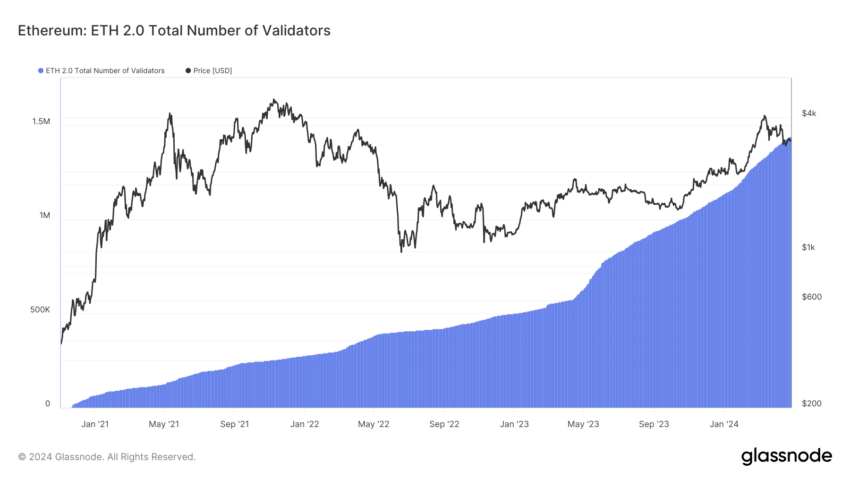The tension between Consensys and the Securities and Exchange Commission (SEC) has escalated, sparking debates over the boundaries of regulatory oversight.
The crux of the matter centers on the SEC’s recent moves to classify Ethereum, the world’s second-largest cryptocurrency by market capitalization, as a security.
The Case Against Ethereum as a Security
Consensys argues that this regulatory attempt is an overreach that stifles innovation and harms developers, investors, and the broader institutions that rely on Ethereum’s decentralized nature. Amidst this backdrop, the firm has taken a definitive step by filing a lawsuit against the SEC. It contests the agency’s authority to impose such classifications on Ethereum.
One of the core arguments presented by Consensys hinges on Ethereum’s transition from Proof-of-Work (PoW) to Proof-of-Stake (PoS). According to a spokesperson from Consensys, this change does not inherently transform Ethereum into a security, contrary to popular belief.
The spokesperson contends that the essence of what makes a digital asset a security does not revolve around its consensus mechanism, whether it be PoW or PoS. Instead, the focus should be on the asset’s decentralization and nature. These aspects have been robustly maintained in Ethereum’s architecture.
Read more: Ethereum Merge: Everything You Need To Know

The shift to PoS has, if anything, further decentralized Ethereum. With over 1.44 million validators, the Merge upgrade enabled more participants to maintain and validate the network. This contradicts the SEC’s insinuations that Ethereum’s new model might centralize control, a point that Consensys robustly refutes.
“Through Proof-of-Stake, everyone can participate in validating Ethereum, supporting the networks, and maintaining the network. And you can do that by operating your own node, you can do that through staking. So the idea that Proof-of-Stake somehow makes it more centralized is just wrong,” a Consensys spokesperson told BeInCrypto.
Regulatory Agencies Contradict Each Other
The implications of the SEC’s decision to label Ethereum as a security are profound. Should Ethereum be deemed a security, the repercussions for the US market could be severe. It could potentially bar the sale and purchase of Ethereum within the country.
This would isolate American investors and developers and put the country at a significant disadvantage in the global digital economy.
“If the SEC has its way, all this innovation is going to be stamped out, and then I think the rest of the world is going to pass us by. That’s not something that we can tolerate. It’s not something that the rest of the industry, or really anyone, should tolerate because it’s bigger than just crypto and blockchain. This is an attack on technology,” the Consensys spokesperson said.
Consensys also emphasizes that the innovation currently thriving under the shadow of regulatory uncertainties could reach new heights if these threats were diminished. The lawsuit, therefore, is not just about Ethereum but about protecting technological advancement from misguided regulatory overreach.
The legal arguments presented by Consensys draw heavily on historical precedents and the definitions provided by regulatory bodies themselves. Notably, the firm references the 2018 statement by SEC Director William Hinman, who specified that Ethereum was not a security.
“Putting aside the fundraising that accompanied the creation of [Ethereum], based on my understanding of the present state of [Ethereum], the Ethereum network and its decentralized structure, current offers and sales of [Ethereum] are not securities transactions,” Hinman said.
Moreover, Consensys underlines the consistent classification of Ethereum as a commodity by the Commodity Futures Trading Commission (CFTC), challenging the SEC’s contradictory stance.
Implications of the Lawsuit’s Outcome
If Consensys prevails in its lawsuit, the victory could set a significant precedent. It could curb the SEC’s reach into areas like cryptocurrency and reinforce the need for clear, consistent regulatory frameworks. Such a win would provide much-needed clarity for Ethereum, bolster confidence, and encourage further innovation and investment within the US blockchain and digital asset sectors.
Read more: Ethereum (ETH) Price Prediction 2024 / 2025 / 2030
The ongoing legal battle reflects a broader discussion about the role and scope of regulatory bodies in emerging technologies. Consensys claims the SEC should focus on its primary role of regulating securities, not software. The company advocates for a regulatory approach that fosters innovation rather than stifling it under the weight of inappropriate and overextended regulatory frameworks.
“The SEC is a securities regulator, not a software regulator. Gary Gensler and the SEC should stay in their lane as they have important work that they need to do with actual securities. They’ve been distracted by this really unlawful excursion into the crypto space,” the Consensys spokesperson concluded.
As the legal proceedings unfold, Consensys’s challenge against the SEC represents more than just a defense of Ethereum; it symbolizes a critical stand for the autonomy and progression of the entire digital asset ecosystem.
The post Consensys to SEC, Gary Gensler: Stay in Your Lane appeared first on BeInCrypto.
